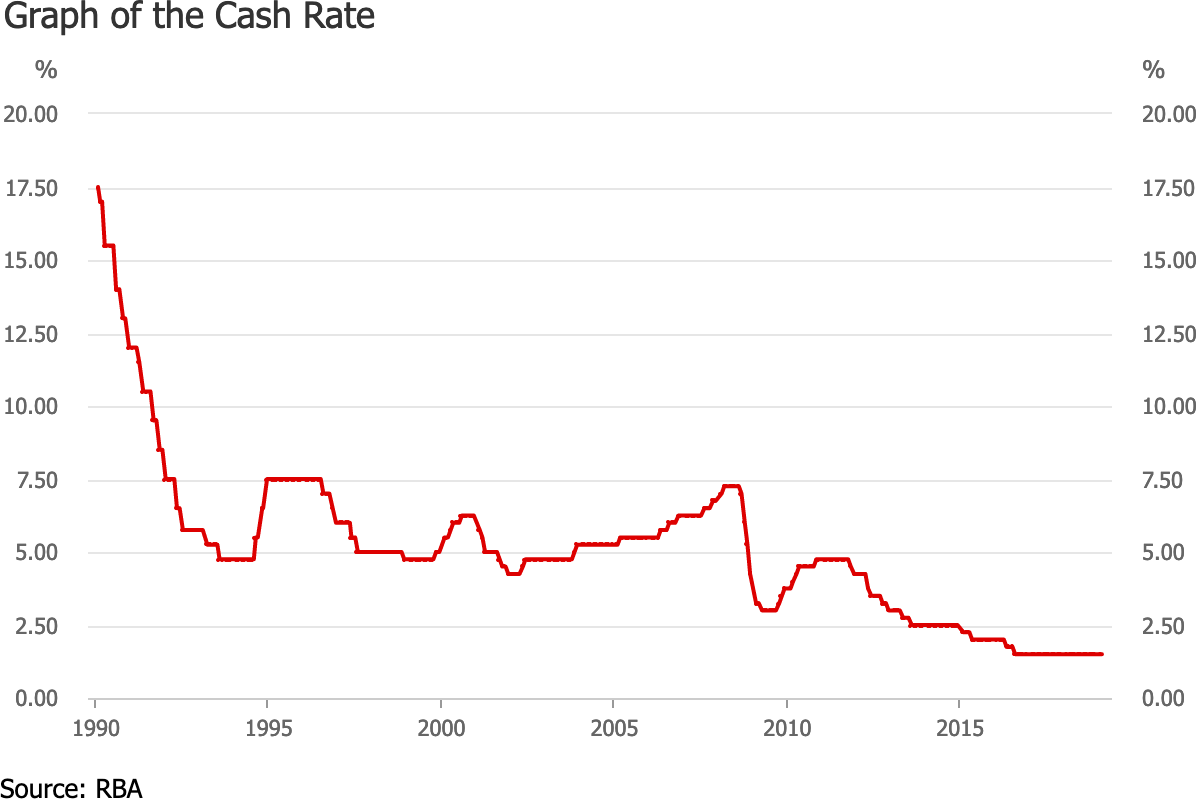National Australia Bank’s (NAB) senior economic team, led by Alan Oster, believe Australia’s central bank, the RBA, could keep official interest rates stuck near their record low for a long time yet.
Confidence Tipping Over
NAB’s latest monthly business survey, which measures confidence in the Australian economy and specifically in small business, showed yet more concerns from the business community.
Worryingly, this comes at a time when consumers are fretting about falling Australian house prices, investors are grappling to get a handle on the USA and China trade war and economists continue to predict a falling Australian dollar.

NAB Chief Mr Oster says low inflation coupled with low wages growth may, in fact, mean the RBA are forced to cut interest rates before they are raised again.
“With inflation remaining weak and growth weaker than the RBA expected, the risk is that the bank will act to bolster the economy should the labour market show any signs of deterioration or consumer spending weaken further,” Oster says.
“While our central case is for the cash rate to remain on hold, based on the balance of risks the next move could well be down, potentially as soon as the second half 2019.”
Another leading publication on sentiment is provided by the Melbourne Institute. In January, the Institute’s economic report showed “below trend activity across the major states” but noted a spike in investment in NSW and Victoria.
Indeed, optimism is quickly turning into pessimism for consumers, the latest Westpac-Melbourne Institute Index of Consumer Sentiment finds.
“The ‘cautiously optimistic’ consumer mood that prevailed through 2018 has evaporated with sentiment beginning the new year with a slightly pessimistic view,” Westpac Senior Economist Matthew Hassan said.
“At 99.6, the Index is below the 100 level, indicating that pessimists outnumber optimists, although only by a slim margin. This is the first time sub-100 reading from the survey since November 2017.”
With regards to interest rates, Westpac says it sees downside risks to the economy.
“The weakening in consumer sentiment will be unsettling for the RBA given its concerns about downside risks to the outlook for consumer spending,” Hassan added. “Westpac continues to expect rates to remain on hold in 2019 and 2020.”
ETF Community Implications Varying
For investors in Exchange Traded Funds (ETF) and managed funds, the ‘lower for longer’ implications for fixed income portfolios is obvious — we can expect more of the same. However, if interest rates were to fall there may be more upside for investors in fixed income products, such as those provided by Vanguard, BlackRock or VanEck.
For equity and property investors, lower Aussie rates will be welcome news following the market wobbles of 2018.
As reported by The Australian Financial Review, TMS Capital’s Ben Clark says lower interest rates would be good for shares.
“Overall, for equity market pricing, it should be a positive. If you’ve got declining future interest rates, that’s normally supportive for share markets as the present value of future cash flows becomes more positive.”
[ls_content_block id=”695″ para=”paragraphs”]



